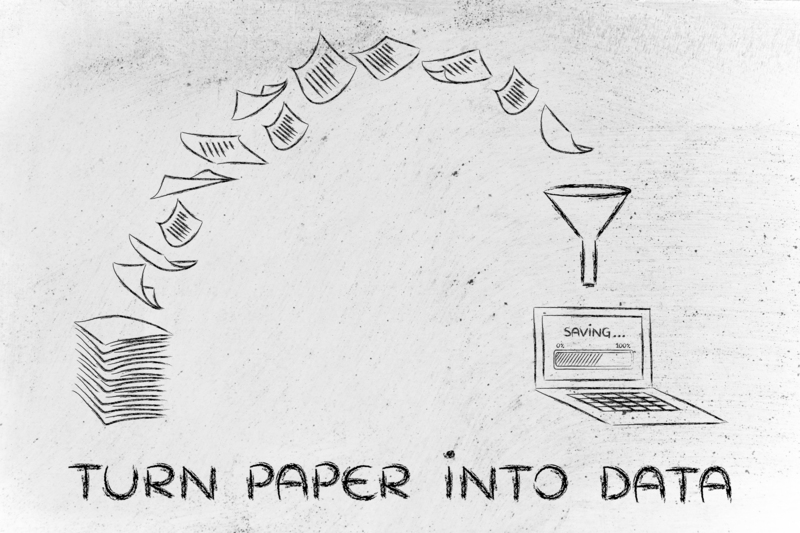Innovative Ideas for Responsible PPE Waste Collection and Disposal
The global COVID-19 pandemic has exponentially increased the production and usage of personal protective equipment (PPE). Facemasks, gloves, face shields, and other single-use protective gear have become essential in healthcare, offices, public places, and even homes. However, this surge has presented a new environmental challenge--PPE waste collection and disposal. Improperly disposed PPEs contribute to pollution, pose health hazards, and threaten ecosystems and wildlife.
This comprehensive article explores state-of-the-art and creative approaches to responsible PPE waste management. Discover how communities, organizations, and individuals can adopt sustainable solutions for PPE waste disposal, and why innovative PPE recycling is vital for our planet's health.

Why Responsible PPE Waste Collection and Disposal Is Essential
PPE disposal is more than a logistical issue; it is an environmental and public health necessity. Improper disposal of masks, gloves, and gowns can cause:
- Environmental pollution--PPE items are typically made of plastics and synthetic fibers that do not biodegrade easily.
- The spread of infectious diseases if contaminated waste is left in public areas or mixed with regular trash.
- Harm to wildlife, as animals may ingest discarded PPE or get entangled.
- Blockage of waste management systems and increased landfill waste.
These challenges require responsible PPE waste management solutions that are innovative, practical, and scalable.
Challenges in PPE Waste Collection and Recycling
PPE waste presents unique challenges:
- Contamination Risks: Used PPE is often considered biomedical or hazardous waste, requiring specialized handling to reduce exposure risks.
- Material Complexity: PPE is usually made with complex, multi-layered plastics that are difficult to recycle with standard methods.
- Massive Volume: The sheer volume generated by healthcare providers and the general public overwhelms traditional waste systems.
- Disposal Costs: Safe incineration and treatment of biomedical waste is cost-intensive, especially for low-resource regions.
Therefore, innovative PPE waste solutions must consider safety, scalability, cost-effectiveness, and environmental impact.
Innovative Ideas for Responsible PPE Waste Collection
1. Smart PPE Disposal Bins
Smart bins equipped with sensors can identify when they are full, automatically sealing and separating contaminated PPE. These IoT-enabled bins relay real-time data to waste management services, ensuring timely and safe collection. Some advanced models also use ultraviolet (UV) light to disinfect their contents, reducing infection risks for waste handlers.
2. Color-Coded PPE Collection Points
To make PPE collection intuitive, placing color-coded waste bins in public places, offices, and hospitals helps. For example:
- Red bins for contaminated PPE from clinical settings.
- Blue or green bins for non-contaminated facemasks and gloves from community areas.
Clear labeling and instructional posters nearby promote responsible PPE waste segregation.
3. Reverse Vending Machines for PPE
Reverse vending machines, commonly used for bottle recycling, can be adapted for collecting used facemasks and gloves. These machines incentivize responsible disposal by providing coupons, cash, or digital credits in exchange for deposited PPE. They also seal and store the waste safely for later collection and treatment.
4. Mobile Collection Units
Deploying mobile PPE waste collection trucks or kiosks, especially in high-density urban or rural areas, enhances convenience and coverage. Starting scheduled routes in residential neighborhoods and commercial districts ensures efficient collection and education about safe PPE disposal practices.
5. Take-Back Programs in Retail and Pharmacies
Retailers and pharmacies that sell masks, gloves, and shields can provide drop-off points for used PPE. Extended Producer Responsibility (EPR) regulations may even require manufacturers and retailers to participate in PPE take-back schemes, ensuring products they manufacture are disposed of properly.
Responsible PPE Waste Treatment and Disposal Innovations
6. On-Site Disinfection and Sterilization
Hospitals and large workplaces can set up on-site PPE disinfection using steam sterilization, autoclaving, or chemical treatments. This reduces transportation needs and allows for safer handling and recycling of disinfected materials.
7. Thermal Degradation and Pyrolysis
Instead of traditional incineration, pyrolysis breaks down plastics in PPE at high temperatures in the absence of oxygen, producing usable fuels and minimizing toxic emissions. This sustainable waste-to-energy process offers a lower-carbon alternative for handling vast quantities of PPE.
8. Mechanical and Chemical Recycling
Cutting-edge facilities are developing *chemical recycling*--using solvents or heat to break down the plastic polymers in PPE to their base components. These substances can be reused to manufacture new plastic goods, establishing a circular economy loop for PPE waste.
9. Upcycling PPE Waste
Creative minds around the world are exploring how to upcycle discarded PPE:
- Cement and asphalt manufacturers mix shredded masks and gloves into road-building materials, adding strength and reducing landfill load.
- Fashion designers use cleaned, non-contaminated PPE for art or fashion items, raising awareness and reducing waste.
10. Biodegradable and Compostable PPE
Perhaps the most forward-thinking innovation is replacing traditional petroleum-based PPE with biodegradable alternatives. PPE made from plant-based polymers, for instance, can be composted safely, provided proper collection and composting systems are in place. Governments and organizations can support R&D and the adoption of eco-friendly PPE.
Role of Policy, Regulation, and Public Education
The success of any PPE waste collection program depends on effective policy and informed public participation. Key strategies include:
- Government mandates on separating and properly collecting PPE waste.
- Subsidies or incentives for businesses investing in PPE recycling technology.
- Clear communication campaigns to teach the public about safe and responsible PPE disposal.
Education should address the health and environmental consequences of improper disposal and provide practical, easy-to-follow guidance for individuals and organizations.
Community Engagement and Grassroots Efforts
- Schools can organize PPE collection drives, converting waste into eco-bricks for local building projects.
- Neighborhood associations may set up localized collection points or volunteer-led waste pick-up events.
- NGOs and community leaders can train sanitation workers in safe collection methods and provide them with appropriate equipment.
Technology and Data Analytics for PPE Waste Management
Harnessing technology can revolutionize PPE waste tracking and management:
- GIS-based mapping identifies hotspots for PPE littering and optimizes bin placement.
- Mobile apps allow citizens to report full bins, littering, or illegal dumping sites in real time.
- Data analytics optimize collection routes, reduce operational costs, and inform policy decisions.
Corporate Social Responsibility in PPE Waste Solutions
Corporations play a vital role in addressing PPE waste:
- Implementing PPE recycling bins in workplaces and retail spaces.
- Sponsoring research and pilot projects for advanced PPE recycling.
- Participating in global initiatives for "zero-waste" PPE practices.

Measuring Success: Key Performance Indicators
For sustainable and effective PPE waste collection and disposal, tracking measurable outcomes is crucial. Metrics include:
- Volume of PPE diverted from traditional landfills or incinerators.
- Proportion of PPE waste recycled or upcycled into new products.
- Reduction in PPE found in streets, waterways, or wildlife habitats.
- Community engagement levels in collection and recycling programs.
Conclusion: The Future of Responsible PPE Waste Management
The challenges of PPE waste are unmistakably complex, but with *innovative solutions*, collaboration, and public commitment, we can transform a potential hazard into a sustainable resource. From smart bins to biodegradable PPE, reverse vending machines, and community-driven efforts, we are witnessing an era of innovation in PPE waste disposal. Public health, environmental safety, and the preservation of our planet demand ongoing investment in responsible PPE waste collection and disposal. Embracing these creative ideas will help build a cleaner, safer, and more resilient future.
What Can You Do?
- Always dispose of PPE responsibly--use designated bins and never litter.
- Educate yourself and your community about proper PPE recycling options.
- Advocate for innovative PPE waste solutions in your workplace and local government.
By acting together, we can ensure that our effort to stay safe does not come at the expense of the environment. Adopt innovative PPE waste collection and disposal methods today for a cleaner tomorrow.